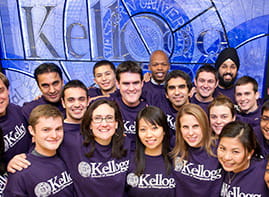Event convenes practitioners and scholars to assess impact of healthcare policy on innovation
11/3/2008 - New technology is transforming and prolonging lives. But it’s coming at a cost.
 |
| Mark Pauly delivered the Malcolm T. MacEachern Memorial Address on Oct. 31. The professor of healthcare systems considered how rising costs will likely affect Medicare’s future. |
| Photo © Nathan Mandell |
Technology costs are rising quickly, making medical care a luxury good and forcing consumers to choose whether to pay for it, said Mark Pauly, who delivered the Malcolm T. MacEachern Symposium Memorial Address Oct. 31 at the James L. Allen Center.
Medicare’s increasing expense will bite deeper into Americans’ pocketbooks, said Pauly, a professor of healthcare systems at the Wharton School. “The problem for Medicare’s future is that the tax rates that will pay for the promise [of this care] will rise dramatically,” he said. “Medicare, as it is now, is not sustainable … so we need to think of other ideas.”
Pauly’s address was part of the daylong MacEachern Symposium, an annual Kellogg event, named for the physician who helped found the school’s healthcare management program. The symposium marked its 21st year and offered health practitioners and academics a chance to discuss changes in healthcare policy and related impacts on innovation.
Pauly said that the push for technology comes from middle- and upper-income consumers who are willing to pay part of the expense. But some of those costs spill over to people in lower economic brackets who are unable to afford the technological benefits. Unlike other industries, healthcare technology cannot be segmented with respect to different income levels, Pauly said.
He said that people will need to determine what they want from healthcare and what they are willing to pay to help solve the challenges of increased spending in this arena.
“We need to talk amongst ourselves,” Pauly said. “That’s probably the most important conversation to have.”
The symposium also included a forecasting panel that addressed healthcare policy. Panelists agreed that the healthcare system needs reform and said ignoring that problem would be dangerous.
Charles Baker ’86, president and CEO of Harvard Pilgrim Health Plan, suggested that a government healthcare entity that operates similar to the Federal Reserve would likely be productive in making changes. “Right now there are multiple agencies and no coordinated efforts,” Baker said.
Pauly, also a panelist for the forecasting session, said that it is likely that no more money will be poured into the government healthcare system. “The anticipation for the government to spend more on healthcare is closed, but the government can rearrange the way that that healthcare is provided,” he said.
With the economy in a slump, Michael Sachs, chairman and CEO of Sg2, said the use of healthcare services is slowing. “People think that healthcare is immune to the economy, but it’s not,” Sachs said. “People are delaying procedures and care.”
The weak economy also was the topic for a morning panel about the impact of health policy on medical innovation.
Patrick Balthrop ’96, CEO of the Luminex Corp., noted that innovation historically happens at small- or mid-cap companies, so access to strong capital markets is important. But biotechnology firms, whose products are years away from commercialization may have a more difficult time in finding funding.
“Surer bets will be placed,” Balthrop said. “There will be less risk taken.”
Other events during the symposium included a presentation by NBC News Chief Science Correspondent Robert Bazell and panel discussions on the impact of potential health policy changes on health providers and payers.
“I want people to understand that technological change is the engine of the health economy,” said David Dranove, the Walter McNerney Professor of Health Industry Management. “I want them to think deeply about how government policy is going to affect us, as businesses who try to innovate and as consumers who are healthcare purchasers.”






